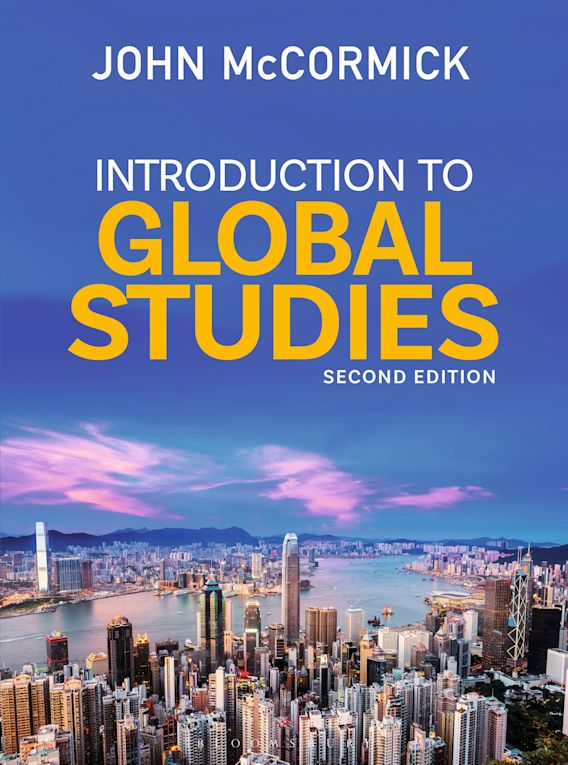


Are you sure you want to reset the form?
Your mail has been sent successfully
Are you sure you want to remove the alert?
Your session is about to expire! You will be signed out in
Do you wish to stay signed in?
Chapter 1: The rise of the global system
1. Is a borderless world possible? And what would that look like?
2. What alternatives can you propose for globalization?
3. What impact do you think that Covid-19 will have on the functioning of the global system?
Chapter 2: Population and resources
1. What factors have contributed to the changing rate of population growth?
2. What effect is the population dominance of Asia having on the rest of the world?
3. What changes have you made to your life in order to make more sustainable use of resources such as food and energy?
Chapter 3: Science and technology
1. Have we allowed ourselves to become too reliant on digital technology?
2. What have you done to protect yourself from the dangers of the post-truth world?
3. What is your opinion about human job security in the age of AI?
Chapter 4: States and governments
1. In the age of globalisation, has our definition of nation states become obsolete?
2. Does the rise in nationalism in the 21st century pose a threat to the established structures of world order?
3. Does the state know too much about you?
Chapter 5: Identity and culture
1. In this age of globalization and interconnectedness, how has the discussion around cultural identity changed?
2. How have developments in technology affected your worldview and personal sense of identity?
3. As far as your own identity is concerned, in what order of importance would you place gender, religion, ethnicity, and nationality?
Chapter 6: Global governance
1. Could the world benefit from more regimes, or do we already have too many?
2. The United Nations has never won the Nobel Peace Prize (although several of its specialized agencies have). Is it a worthy potential candidate for the award?
3. Is the European Union a model worth emulating?
Chapter 7: Human rights
1. Is the definition of human rights based too much on Western ideas and values, or do these rights take a balanced view of rights as they are defined by different societies?
2. What impact is globalization having on the definition of human rights?
3. How much progress are we making – on a global basis – in the application of human rights, and from where do the major challenges to those rights come?
Chapter 8: War, peace and security
1. How does the recent outbreak of civil wars or insurgencies in Chad, Ethiopia, Nigeria, South Sudan, and Yemen fit with the arguments made in the book about the nature of warfare?
2. “If you want peace,’ runs the Latin adage, “prepare for war”. Is this argument still relevant in the age of globalization?
3. Do recent developments in the use of technology to attack computer networks, energy supply systems, and transport networks make you more or less optimistic about the future of international security?
Chapter 9: The global economy
1. What have the disruptions in global supply chains created by the fallout from the Covid-19 pandemic taught us about the nature of the global economic system?
2. Give a person a fish, runs the old adage, and you will feed them for a day. Teach them how to fish and you will feed them for life. To what extent does this apply to international development aid?
3. Given the extent to which income gaps are widening within countries, how can we expect to close those gaps among countries?
Chapter 10: Trade
1. Given current trends, which countries (or groups of countries) are likely to dominate the global trading system fifty years from now?
2. Have you personally made any changes in the choices you make about buying imported goods, and – if so – what impact do you hope those changes will have?
3. Free trade or open markets: which makes the most sense in an era of globalization?
Chapter 11: Migration
1. Should we give up on migration controls, and go back to the pre-World War I idea of open borders? What would be the advantages and disadvantages of such an approach?
2. What is the best approach to controlling unauthorized immigration: building walls, or investing in the economic, social and political development of source countries?
3. Should the international community be doing more through bodies such as the UN to address the global refugee problem?
Chapter 12: Health and disease
1. In what ways has your life changed as a result of the Covid-19 pandemic?
2. What strengths and weaknesses does the World Health Organization bring to the resolution of global health problems?
3. Where does infectious disease rank among the influences that you think are going to have the greatest effect on the choices you make during your lifetime?
Chapter 11: The global environment
1. Have you seen any evidence of corporate social responsibility positively impacting the role multinationals play in addressing environmental problems?
2. Have you personally made any changes in the way you live your life based on environmental concerns, and – if so – what impact do you hope those changes will have?
3. Where does climate change rank among the influences that you think are going to have the greatest effect on the choices you make during your lifetime?

.